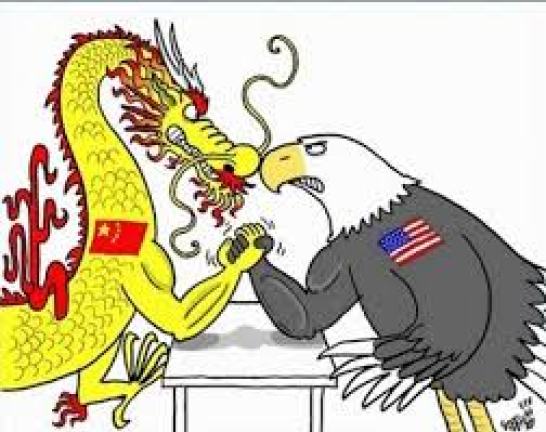 China on Monday imposed new tariffs on 128 US imports worth $3 billion, including fruits and pork, in retaliation to US duties on steel and aluminium, fuelling fears of a trade war.
China on Monday imposed new tariffs on 128 US imports worth $3 billion, including fruits and pork, in retaliation to US duties on steel and aluminium, fuelling fears of a trade war.
Beijing’s move, which the Xinhua news agency said was decided by the custom tariffs commission of the State Council, follows weeks of heated rhetoric and threats between the world’s two biggest economies.
President Donald Trump has repeatedly railed against China’s massive trade surplus over the United States, promising during the US election campaign to slash the US deficit.
Beijing had warned last month that it was considering the tariffs of 15 percent and 25 percent on a range of products that also include wine, nuts and aluminium scrap. The tariffs came into force on Monday, Xinhua said, citing a finance ministry statement.
The levies are in response to tariffs of 10 percent on aluminium and 25 percent on steel that have also angered US allies.
Trump, however, has temporarily suspended the tariffs for the European Union as well as Argentina, Australia, Brazil, Canada, Mexico and South Korea.
The US leader has also unveiled plans to impose new tariffs on some $60 billion of Chinese imports over the “theft” of intellectual property.
China has called on the United States to stop its “economic intimidation” and warned it was ready to hit back.
Beijing ‘held its ground’
But Beijing has so far held fire against major agricultural products such as soybeans or major industries such as aerospace giant Boeing — items that state-run daily the Global Times suggests should be targeted.
The nationalistic newspaper said in an editorial last week that China has “nearly completed its list of retaliatory tariffs on US products and will release it soon.”
“The list will involve major Chinese imports from the US,” the newspaper wrote, without saying which items were on the document.
“This will deal a heavy blow to Washington that aggressively wields the stick of trade war and will make the US pay a price for its radical trade policy toward China,” the Global Times wrote.
Despite the rhetoric, US Commerce Secretary Wilbur Ross on Thursday suggested the new measures on intellectual property were a “prelude to a set of negotiations”.
The United States ran a $375.2 billion deficit with China last year.
But the Global Times, without revealing sources, said the United States had made “some unreasonable demands in an attempt to coerce China into a compromise.
“This was naive. With strong trading power, China held its ground.”
(AFP)

Leave a Reply
You must be logged in to post a comment.